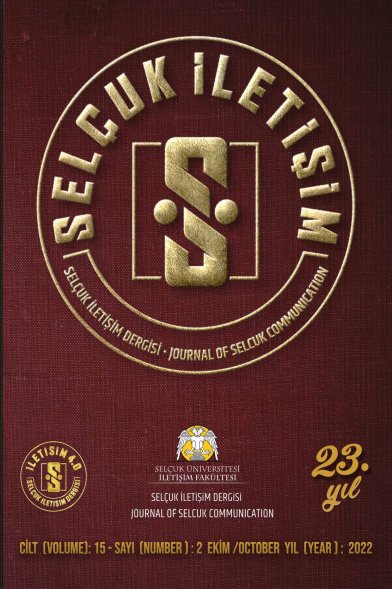Gazete Haberlerinde Etik Standartların Yükseltilmesinde Okur Temsilcisinin Rolü
Medya kuruluşlarında ve özellikle gazetelerde okur temsilcisi (ombudsman) uygulaması son yıllarda tüm dünyada giderek yaygınlaşmaktadır. Okurların gazete içerikleri hakkındaki şikayetlerini dinleyerek onlara her hafta düzenli olarak yayımlanan okur temsilcisi köşesinde yanıt veren okur temsilcisi, gazete ile okuyucu arasında bir köprü işlevi görür. Bir taraftan okuyuculara yanıt veren diğer taraftan okuyucu şikayetleri ile ilgili olarak gazete çalışanlarını uyaran okur temsilcisinin asıl amacı; gazetede yayımlanan haberlerde etik standartlara uyulmasını, haber yazımında daha az hata yapılmasını, haberlerin daha nitelikli bir şekilde sunulmasını sağlamak ve böylece okuyucu gözünde gazetenin prestijini arttırmaktır. Bu araştırmada, okur temsilciliği kurumunun gazetecilikte etik standartların yükseltilmesine ne ölçüde katkı sağlayabildiği sorgulanmaktadır. Bu amaçla, 1999-2003 tarihleri arasında yayınlanmış Milliyet Gazetesi okur temsilcisi köşelerinin tamamı içerik analizi tekniği ile analiz edilmiştir. Elde edilen veriler SPSS 7.10 paket programına aktarılarak araştırmanın amaçları doğrultusunda çözümlenmiştir. Bu araştırmadan elde edilen bulgular, gazetelerde etik standartlar bakımından haber içeriklerini daha nitelikli hale getirmede okur temsilcisinin önemini ortaya çıkarması bakımından büyük bir değere sahiptir.
The Role of Readers' Representative in the Development of Ethical Standarts in Newspapers' News
The practice of readers’ representative has become common recently in media establishments and especially in newspapers all over the world. Readers’ representative who collects the complaints of readers about the content of the newspaper and who answers them in the readers’ representative column published regularly, functions as a bridge between the newspaper and the reader. The main purpose of the readers’ representative who answers the readers on one hand and who warns the newspaper staff about the readers’ complaints on the other hand is to provide ethic standards, decrease the number of errors in news writing, to offer the news in more quality way and thus, to increase the prestige of the newspaper in the readers' eyes. In this study, it is questioned that in what extend the institution of the readers’ represantative can have contribution to the development of the ethical standards in journalism. To this aim, all of the readers' representative columns published in Milliyet newspaper between 1999 and 2003 were analysed using content analysis technique. The data was analysed using SPSS 7.10 computer program considering the aims of the study. The findings of this study are valuable in terms of revealing the importance of readers’ representative for the newspapers in improving the quality of news contents in the aspect of ethical standarts.
___
- Alemdar Z (1990) Oyunun Kuralı, Bilgi Yayınevi, Ankara.
- Bernstein J M (1986) The Public’s View of Newspaper Accountability, Newspaper Research Journal, 8, 1-9.
- Barnett W L (1973) Survey Shows Few Papers are Using Ombudsmen, Journalism Quarterly, 50, 153-156.
- Baydar Y (2001) Okur Temsilcisi 2 Yaşında, Milliyet Gazetesi, 26 Mart, s.13.
- Bülbül A R (2000) İletişim ve Etik, Damla Matbaası, Konya.
- Bülbül A R (2001) İletişim ve Etik, Nobel, Ankara.
- Ettema J S and Glasser T L (1987) Public Accountability or Public Relations? Newspaper Ombudsmen Define Their Role, Journalism Quarterly, 64, 3-12.
- Girgin A (2000) Yazılı Basında Haber ve Habercilikte Etik, İnkılap, İstanbul.
- Hartung B W, JaCoby A ve Dozier D M (1988) Readers’ Perceptions of Purpose of Newspaper Ombudsman Program, Journalism Quarterly, 65, 914-919.
- http://www.byegm.gov.tr/seminerler/kayseri-x/kayseri_0_1.htm
- İçel K (1990) Kitle Haberleşme Hukuku, Beta, İstanbul.
- İrvan S (1999) Çocukları Konu alan Haberlerde Etik Sorunlar, İletişim Ortamlarında Çocuk Birey Sempozyumu 13-15 Nisan 1999, Eskişehir.
- İrvan S (2003) Medya ve Etik, Medya, Sevda Alankuş (ed), Etik ve Hukuk, IPS İletişim Vakfı Yayınları, İstanbul.
- JaCoby A (2005) The Newspaper Ombudsman: A Personal Memoir Of The Early Days, http://www.newsombudsmen.org/jacoby.html 7.01.2005.
- Kapoor S and Smith R (1979) The Newspaper Ombudsman-A Progress Report, Journalism Quarterly, 56, 628-631.
- Lubrano G (2000) İşim Özem Elçilik, Milliyet Gazetesi, 7 Ağustos, s.20.
- Lubrano G (2005) The Organization of News Ombudsmen, http://www. newsombudsmen. org/lubrano11.html 12.01.2005.
- McKinzie B W (1994) How Papers With and Without Ombudsmen Resolve Disputes, Newspaper Research Journal, 15, 14-24.
- Meyers C (2001) Creating an Effective Newspaper Ombudsman Program. Journal of Mass Media Ethics, 15, 248-256.
- Nauman AC (2005) News Ombudsmenship: Its History and Rationale, http://www. news ombudsmen.org/nauman2.html 07.01.2005.
- Nelson D R and Starck K (1974) The Newspaper Ombudsman as Viewed By The Rest of The Staf, Journalism Quarterly, 51, 453-457.
- Pritchard D (1993) The Impact of Newspaper Ombudsmen on Journalists’ Attitudes, Journalism Quarterly, 70, 77-86.
- Starck K and Eisele J (1999) Newspaper Ombudsmanship As Viewed By Ombudsmen And Their Editors, Newspaper Research Journal, 20, 37-49.
- Wilson S L, Babcock W A ve Pribek J (1997) Newspaper Ombudsmen’s Reactions To Use of Anonymous Sources, Newspaper Research Journal, 18, 141-153.
- X. Yerel Medya Eğitim Semineri (2004) Açılış Konuşması: Türkiye’de Yerel Medya, X. Yerel Medya Eğitim Semineri, 20-21 Şubat 2004, Kayseri.
- Yayın Aralığı: Yılda 2 Sayı
- Başlangıç: 1999
- Yayıncı: Selçuk Üniversitesi İletişim Fakültesi
Sayıdaki Diğer Makaleler
Eskişehir Basını Neden Tiraj Kazanıyor?
Doğunun Paradoksu, Batının Özdeşliği ve Çağdaş Anlatı Sineması
Ulusal Televizyonlardaki Dini Sohbet Programlarının Anlam ve Görüntü Açısından İncelenmesi
Postmodern Dönem Fotoğraf Sanatında Kendine Mal Etme: Sherman, Morimura, Ungun
Günlük Yaşamda İnternet ve Medya İlişkileri
Uluslararası İletişimde Bir Sorun Olarak Haber ve Çözüm Önerileri
Sinemada Anlamın Oluşma Sürecine Bir Örnek: Nerdesin Firuze
Sayfa Düzeni Ekollerinin Estetik ve İçeriğe Etkileri -Hürriyet,Star ve Zaman Gazeteleri Örneği-
